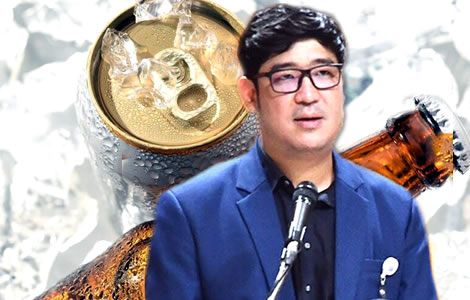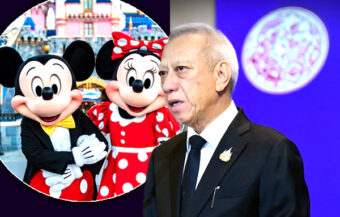People’s Party MP Thaophipop Limjittrakarn has called for a full repeal of Thailand’s alcohol control laws after the government’s partial liberalisation for tourists left local businesses confused and still facing major restrictions on Buddhist holidays.
A new, more liberal regime for the sale of alcohol to foreign tourists came into effect on Friday, May 9th, in Thailand. This followed the publication of an order in the Royal Gazette. However, this does not constitute a full repeal of regulations that restrict alcohol sales on Thai Buddhist holidays. The new provisions also do not apply to non-tourist areas or non-licensed outlets. On Friday, People’s Party MP Thaophipop Limjittrakarn expressed concerns that the partial measure could lead to confusion, especially for small Thai businesses. He called for a complete repeal of alcohol control laws in Thailand.

The Thai government has recently moved to liberalise the country’s alcohol law. In particular, the change was linked to the foreign tourism industry. Specifically, it aims to accommodate foreign tourists who cannot buy drinks on certain Thai Buddhist holidays.
Notably, this amended regulation does not cover the ban on the sale of alcohol between 5 pm and 7 pm. Certainly, the Thai parliament voted to abolish this in March. However, the alcohol bill must complete the parliamentary process, including vetting by the more conservative Senate or upper house. After that, it must be signed by the King.
The new regulations for Buddhist holiday bans is a smaller measure. It came into force on Friday, May 9, 2025. However, the People’s Party is urging many Thai business operators to exercise caution.
Alcohol sales still restricted in non-tourist areas and unlicensed venues despite May 9 liberalisation move
The law particularly applies to entertainment and hotel venues. In addition, it is focused on foreign tourism hotspots throughout the country.
Mr. Thaophipop Limjittrakarn, Bangkok MP from the Prachachon Party, on Friday issued a warning to business owners. He referred to the Royal Gazette’s announcement appearing to permit the sale of alcoholic beverages on Buddhist holy days.
While the news brought hope for some, Mr. Thaophipop cautioned that the old law has not been fully repealed.
Despite this announcement, alcoholic beverages still remain restricted on important Buddhist holy days. The new decree only introduces exceptions for certain types of businesses. Consequently, most shops—like rice soup shops, grocery stores, restaurants, and convenience stores—are still prohibited from selling alcohol.
However, the situation differs for certain businesses. Entertainment venues, including pubs, bars, and discos, are now allowed to sell alcohol. But this is only if they are legally registered and licensed to operate. Without a license, these venues can only sell alcohol in designated tourist areas. Importantly, not all areas in Thailand are classified as tourist zones. Therefore, the exception may not apply to every province.
Only licensed outlets with proper permits may sell alcohol under new exemptions during Buddhist holy days
Hotels are another category with exceptions. However, only those with a valid hotel license, as per the law, can sell alcohol. Mr. Thaophipop pointed out that few hotels meet this criterion, and the exemption doesn’t apply to all types of accommodations.
Mr. Thaophipop stressed the importance of businesses verifying their eligibility before selling alcohol. He cautioned that business owners should not be too hasty, as misunderstandings could lead to legal trouble. “It’s crucial to check your status before selling alcohol on Buddhist holy days,” he advised.
Furthermore, he explained that the exceptions provided by the new announcement still don’t cover all issues. For example, establishments cannot sell ingredients like mirin (rice wine) or red wine for cooking. These restrictions persist during Buddhist holy days, creating challenges for businesses that rely on such products.
The MP also shared his personal perspective. Indeed, he strongly suggested that the law might be better off repealed entirely. “These announcements don’t solve all the problems,” he said. “Repealing the law could lead to a clearer, more straightforward solution.”
Complexities of new law frustrate operators who had hoped for broader liberalisation on Buddhist holidays
While the new regulations permit some sales, they remain complicated and limited. Business owners need to carefully navigate the rules to avoid fines or arrests. Mr. Thaophipop’s warning comes at a time when many establishments had hoped for more leniency.
Yet, the government’s decision to add only a few exceptions is still a far cry from complete freedom for alcohol sales.
Some believe that the new exceptions could have a broader impact. In tourist hotspots, bars and restaurants may see an increase in customers. However, the law’s complex provisions also creates confusion. Therefore, many operators are waiting for clearer guidelines before making changes to their operations.
This ongoing issue highlights the tension between Thailand’s cultural practices and the desires of the business community. The Buddhist tradition of restricting alcohol sales on holy days has long been respected. But with increasing global tourism and economic pressures, some argue that these rules need modernisation.
Business owners, especially in the hospitality sector, still face a complicated legal minefield. Many feel the system is too fragmented. For instance, while large department stores are allowed to sell alcohol in some instances, smaller, non-tourist establishments are still restricted. This inconsistency will cause frustration.
Debate continues as government’s exceptions fail to resolve uncertainty in alcohol laws for holy days
While the Royal Gazette’s recent decision offers some relief, many questions remain.
For now, businesses are advised to stay vigilant. The exception for certain licensed venues and tourist areas doesn’t mean a free-for-all. As Mr. Thaophipop reminded operators, it’s essential to understand where they stand before acting.
The issue may also be far from resolved. Further adjustments to the law could emerge, as pressure builds from various stakeholders. Anti-alcohol lobbyists and conservative forces are already mobilising. They want to reverse the pro-tourism policy set by the government since 2023.
Meanwhile, a potential conservative political upheaval could usher in a more conservative licensing approach. This happened after the 2014 coup d’état.
Ongoing crackdown and tourist misbehaviour may influence how far alcohol liberalisation can actually go
Until then, businesses are encouraged to consult official announcements and legal advisors. This will ensure they remain compliant with the law and avoid penalties.
As Thailand continues to evolve, the debate over alcohol sales on Buddhist holy days persists. The balance between tradition and modern-day economic needs remains a challenge as the issue becomes more politicised.
Of course, reform-minded politicians such as those in the People’s Party want such laws abolished entirely. The new alcohol legislation passed by the House of Representatives in March is certainly a positive sign.
New alcohol law which ushers in a new liberal era allowing for advertising and lifting irksome drinking bans
Mad Dutchman removed from Krabi hotel by police after acting out on drug or alcohol-fueled frenzy
Certainly, its passage into law is not assured. In the meantime, misbehaviour by intoxicated foreign tourists in tourist hotspots like Pattaya and Phuket is certainly an issue that will impact the discussion.
At the same time, competition from other tourist destinations may also help focus the government’s mind. Thai Examiner surveys in 2021 and 2011 showed that 78% of Thai tourist arrivals considered alcohol availability a key issue.
Join the Thai News forum, follow Thai Examiner on Facebook here
Receive all our stories as they come out on Telegram here
Follow Thai Examiner here
Further reading:
Closure of Phuket bars and alcohol restrictions turn off prospective foreign tourists says survey
Blow for travellers: strict rules, no bars and entertainment venues allowed to open in Phuket


















